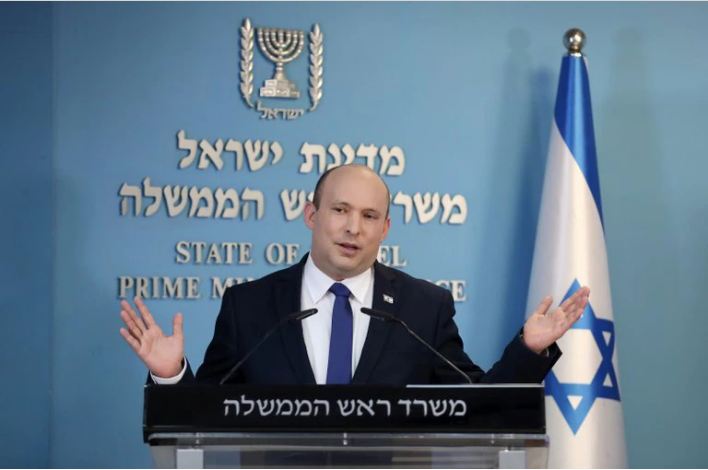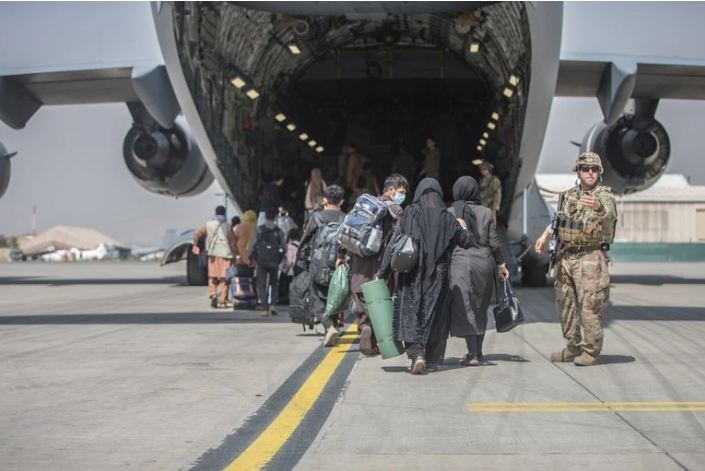The prime minister will speak with Secretary of State Antony Blinken and Pentagon Chief Lloyd Austin on Wednesday. On Thursday he will be received by the US president at the White House, in his first face-to-face meeting
Israeli Prime Minister Naftali Benet left for Washington on Tuesday on his first official trip since taking office , in which he will meet with US President Joe Biden in order to strengthen the alliance between the two countries and address the nuclear deal with Iran, which worries Israel so much.
“Joe Biden is an old and true friend of Israel,” said Benet before boarding the plane to the US, where his official agenda will begin on Wednesday, culminating in the bilateral meeting at the White House on Thursday.
Benet pointed out that he will discuss with the US president measures to “stop the Iranian nuclear plan” , the main issue that divides them, since Biden has been in favor of resuming nuclear negotiations with Iran, Israel’s main enemy.
The prime minister said he was bringing “a new spirit of cooperation” with the US and assured that his willingness to collaborate with Israel’s greatest partner will also serve to strengthen “the special and lasting relationship” between the two countries and the security of the Jewish State.
The meeting will mark the beginning of a new era in the relationship between the highest authorities of Israel and the US, after ousting Benjamin Netanyahu and Donald Trump from power, who during the previous years established a deep political and ideological alliance.
:quality(85)/cloudfront-us-east-1.images.arcpublishing.com/infobae/V6ONNELDIBAFJPKSELJWISV6L4.jpg%20420w) File image of the president of the United States, Joe Biden (Photo: EFE)
File image of the president of the United States, Joe Biden (Photo: EFE)Benet will meet on Wednesday with senior officials from the Democratic government , including Secretary of State Antony Blinken and Defense Secretary Lloyd Austin. On Thursday Biden will receive Benet at the White House, in his first face-to-face meeting , in which they will also address the regional situation in the Middle East, issues of the Israeli-Palestinian conflict, Israel’s relationship with the Palestinian leadership or the influence of China in the Jewish State, but with Iran as the fundamental issue.
The Benet-led coalition – like the previous Netanyahu government – fervently opposes the 2015 Nuclear Agreement between Tehran and the G5 + 1 powers, which Biden is proposing to reintegrate after the Trump administration withdrew the US from the pact in 2018. .
Israel considers Iran its main enemy in the region, sees it as an existential threat and accuses it of having proceeded with plans to obtain nuclear weapons.
Another issue on which Biden and Benet are not expected to make much headway is the Israeli-Palestinian conflict, an issue that is expected to be rather secondary in their talks.
The Biden government is favorable to the two-state solution and reluctant to Israeli colonial expansion in the Palestinian territories, which differs from the classic positions of Benet, a longtime defender of colonization and against a Palestinian state.
“I intend to share with President Biden our accumulated information on the application of the third dose of the vaccine,” Benet also pointed out about the campaign for the booster dose, which in Israel has already received more than 1.5 million people -that today extended to those over 30 years old – and that the US will begin on September 20.



















































































